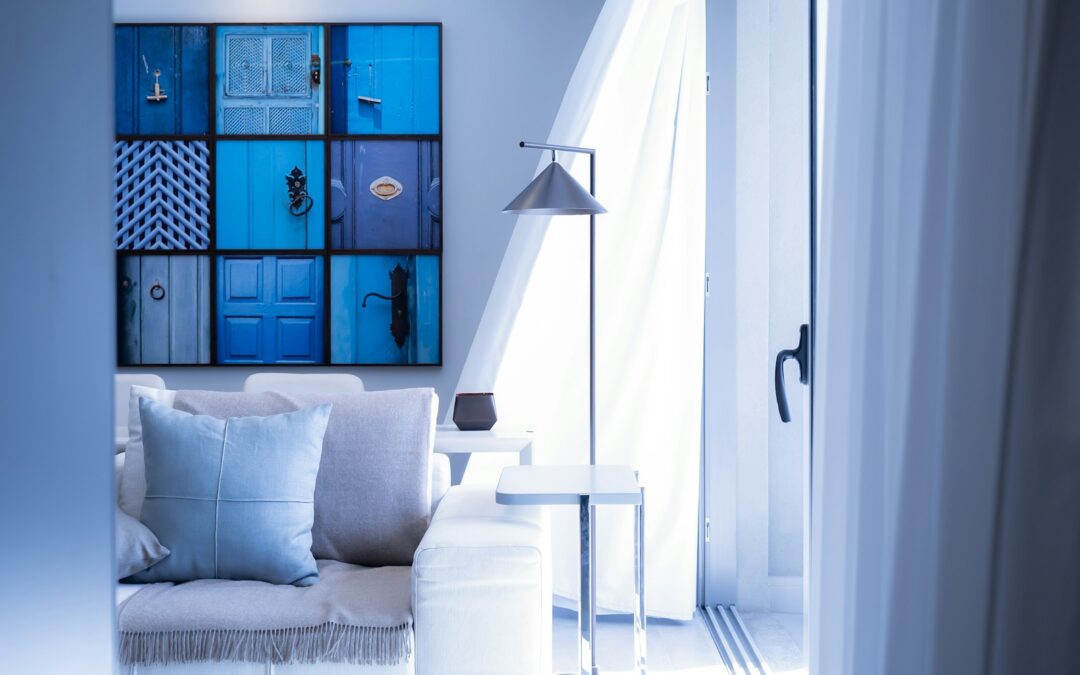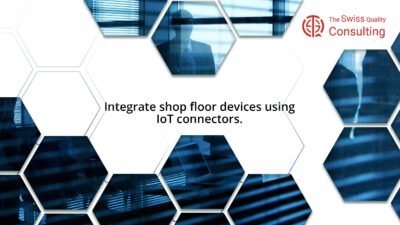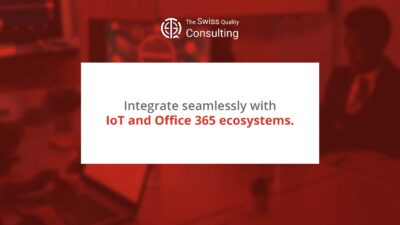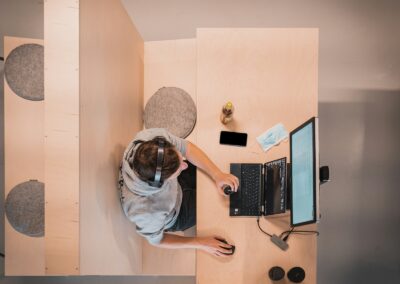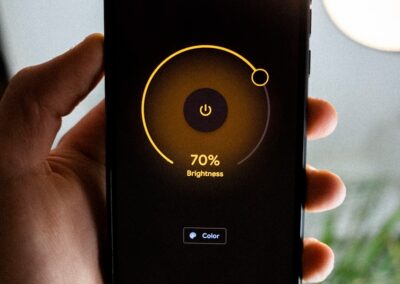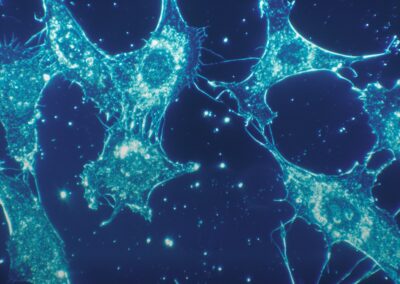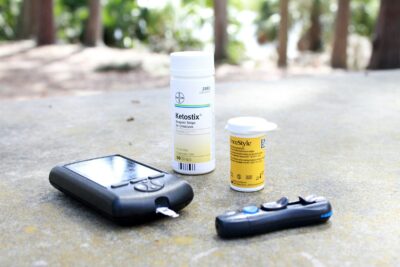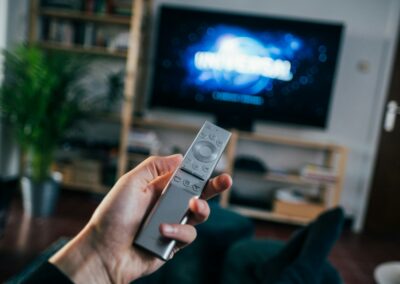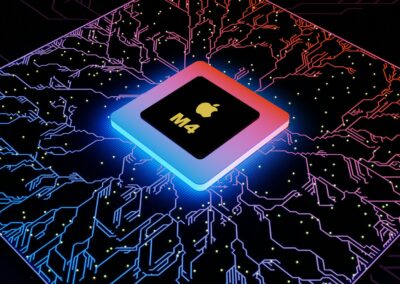Enabling Remote Monitoring and Personalized Care for Residents
Revolutionizing Home Healthcare with AI and IoT
The integration of AI and IoT in home healthcare is revolutionizing the way medical services are delivered, particularly in regions like Saudi Arabia and the UAE. These technologies enable remote monitoring and personalized care, making healthcare more accessible and efficient. As the demand for healthcare services continues to grow, the adoption of AI and IoT in home healthcare provides a scalable solution to address the needs of an aging population and patients with chronic conditions.
In Saudi Arabia, the Vision 2030 initiative emphasizes the importance of healthcare innovation. By incorporating AI and IoT into home healthcare systems, the country aims to enhance the quality of care and reduce the burden on traditional healthcare facilities. AI algorithms can analyze vast amounts of data from IoT devices, such as wearable sensors and smart home systems, to provide real-time insights into a patient’s health status. This allows healthcare providers to monitor patients remotely and intervene promptly if any abnormalities are detected.
Dubai is also at the forefront of adopting AI and IoT in healthcare. The city’s smart home initiatives integrate these technologies to create an ecosystem that supports remote patient monitoring and personalized care. Smart devices can track vital signs, medication adherence, and daily activities, transmitting this data to healthcare professionals for continuous monitoring. This not only improves patient outcomes but also enhances the overall efficiency of the healthcare system by reducing hospital readmissions and emergency visits.
Enhanced Remote Monitoring Capabilities
The use of AI and IoT in home healthcare significantly enhances remote monitoring capabilities, enabling healthcare providers to offer continuous and proactive care. IoT devices, such as wearable health monitors, smart scales, and connected medical devices, collect real-time data on various health metrics, including heart rate, blood pressure, glucose levels, and physical activity. AI algorithms then analyze this data to detect patterns and identify potential health issues before they become critical.
In Riyadh, remote monitoring solutions powered by AI and IoT are transforming chronic disease management. Patients with conditions like diabetes, hypertension, and heart disease can benefit from continuous monitoring, allowing for timely adjustments to treatment plans based on real-time data. This proactive approach reduces the risk of complications and improves overall health outcomes. Additionally, remote monitoring enables healthcare providers to manage a larger patient population more effectively, optimizing resource utilization.
Dubai’s healthcare system leverages AI and IoT to provide personalized care plans tailored to individual patient needs. By analyzing data from multiple sources, AI can generate insights into a patient’s lifestyle, medication adherence, and response to treatments. This information is crucial for developing personalized care plans that address the unique needs of each patient. Furthermore, the use of AI in predictive analytics helps identify patients at risk of developing certain conditions, allowing for early intervention and prevention.
Personalized Healthcare Solutions
One of the most significant benefits of integrating AI and IoT in home healthcare is the ability to provide personalized healthcare solutions. AI-driven analytics can process data from IoT devices to deliver insights that inform customized care plans. This personalized approach ensures that patients receive the most appropriate care based on their individual health profiles, preferences, and needs.
In Saudi Arabia, personalized healthcare solutions are enhancing patient engagement and satisfaction. AI-powered health apps and virtual assistants can provide personalized health advice, reminders for medication and appointments, and tailored wellness programs. These tools empower patients to take an active role in managing their health, leading to better adherence to treatment plans and improved health outcomes. Moreover, personalized care reduces the risk of medical errors and ensures that treatments are more effective.
Dubai is pioneering the use of generative AI in creating personalized healthcare solutions. Generative AI can simulate various treatment scenarios to identify the most effective interventions for individual patients. This technology is particularly useful in complex cases where multiple factors must be considered. By leveraging AI and IoT, Dubai’s healthcare providers can offer highly personalized care that improves patient outcomes and enhances the overall efficiency of the healthcare system.
Conclusion
The integration of AI and IoT in home healthcare is transforming the healthcare landscape by enabling remote monitoring and personalized care. In regions like Saudi Arabia and the UAE, these technologies are enhancing the quality of care, improving patient outcomes, and optimizing resource utilization. By leveraging advanced technologies, healthcare systems can provide more accessible, efficient, and effective care, ensuring that patients receive the right treatment at the right time. As the healthcare industry continues to evolve, the adoption of AI and IoT will play a crucial role in shaping the future of medical services and improving the overall health and well-being of populations.
#AIAndIoTInHomeHealthcare #RemotePatientMonitoring #PersonalizedHealthcareSolutions #SaudiArabiaHealthcareInnovation #UAESmartHomes #RiyadhDigitalHealth #DubaiHealthcareTechnology #AIInHealthcare #IoTInMedicalCare #TheMetaverseInHealthcare #GenerativeAIInHealthServices #BusinessSuccessInHealthTech #LeadershipInHealthcareInnovation #ProjectManagementInHealthcareTechnology

